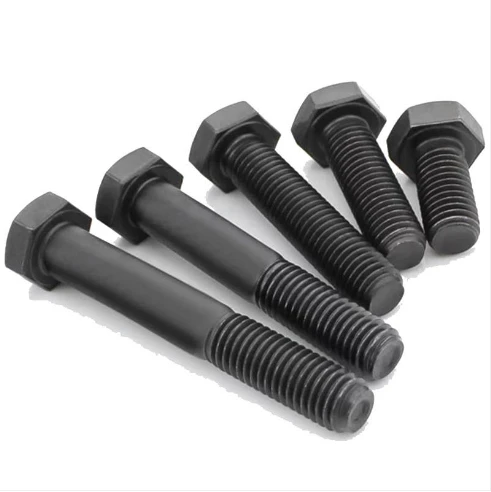Stud Bolt A193 B7M Manufacturers and Suppliers for High-Performance Industrial Applications
Dek . 25, 2024 05:26 Back to list
Stud Bolt A193 B7M Manufacturers and Suppliers for High-Performance Industrial Applications
Understanding Stud Bolt A193 B7M Factories and Manufacturing Process
Stud bolts are essential components used in various industrial applications, particularly in the oil, gas, and petrochemical industries. Among the different specifications available in the market, A193 B7M is a commonly used stud bolt material that meets high-performance standards. This article dives into the specifics of Stud Bolt A193 B7M, focusing on its properties, applications, and the factories involved in its manufacturing.
What is A193 B7M?
A193 B7M is a specification under the ASTM (American Society for Testing and Materials) standards. It refers to high-strength bolts made from alloy steel and is known for its excellent tensile strength and resistance to high temperature. The 'B7M' classification indicates that the material possesses enhanced corrosion resistance due to its specific chemical composition, making it suitable for harsh environments that typically challenge standard materials.
The typical chemical composition of B7M includes significant amounts of chromium and molybdenum, which not only improve strength but also enhance the bolt's stability at elevated temperatures. Specifically, B7M stud bolts are often rated for high-pressure applications, making them a go-to choice for pressure vessels and heat exchangers.
Applications
Stud bolts made of A193 B7M are predominantly used in industries where high strength and corrosion resistance are essential. This includes
1. Oil and Gas Industry In pipelines and drilling equipment, the ability to withstand extreme conditions is critical. B7M bolts ensure that equipment remains secure and operational, even in offshore drilling environments.
2. Power Generation In power plants, especially those utilizing natural gas, B7M bolts are crucial in maintaining the integrity of turbines and compressors, as they can handle both high temperature and pressure.
3. Chemical Processing The chemical industry often deals with corrosive substances. B7M bolts provide the necessary durability and reliability to withstand these conditions, ensuring safety and efficiency.
stud bolt a193 b7m factories

Manufacturing Process of B7M Stud Bolts
The manufacturing of A193 B7M stud bolts involves several stages that ensure quality and performance standards are met
1. Material Selection The process begins with selecting the correct grade of alloy steel that conforms to the A193 B7M specifications. The right balance of elements such as chromium and molybdenum is paramount.
2. Forging The selected steel is then forged, a process that involves shaping the metal using localized compressive forces. This step enhances the material's grain structure, providing better strength and durability.
3. Heat Treatment Post-forging, heat treatment is employed to improve mechanical properties such as hardness and tensile strength. This process may include quenching and tempering, to achieve the desired brittleness and ductility.
4. Threading Once cooled, the forged blanks are machined to create threads. Precision in this step is crucial, as even minor inaccuracies can lead to failures in the field.
5. Quality Testing After manufacturing, stud bolts undergo rigorous testing to ensure they meet ASTM A193 B7M standards. This involves tensile tests, hardness tests, and sometimes, non-destructive testing techniques to assess internal integrity.
6. Finishing and Coating Finally, the bolts may be coated for additional protection against corrosion, particularly in environments where moisture, chemicals, or extreme temperatures are present.
Conclusion
Stud bolt A193 B7M represents a critical element in various sectors, ensuring that components remain secure and durable under challenging conditions. The factories dedicated to its manufacturing adhere to stringent standards to meet the needs of industries that rely on high-performance materials. With continuous technological advancements, we can expect even further improvements in the properties and applications of stud bolts, solidifying their role as indispensable components in modern engineering and infrastructure projects.
Latest news
-
Reliable Axle Nuts Supplier | High-Quality Automotive Parts
NewsAug.19,2025
-
Premium Wire Bolts Suppliers | Durable & Reliable Fasteners
NewsAug.18,2025
-
Leading Metric Wood Screw Companies & Manufacturers
NewsAug.17,2025
-
Top Wire Bolts Suppliers - Quality & Durable Fasteners
NewsAug.15,2025
-
Trusted Wire Bolts Company | Quality Fasteners Supplier
NewsAug.14,2025
-
Reliable Wire Bolts Suppliers & Manufacturers for Global Needs
NewsAug.13,2025
